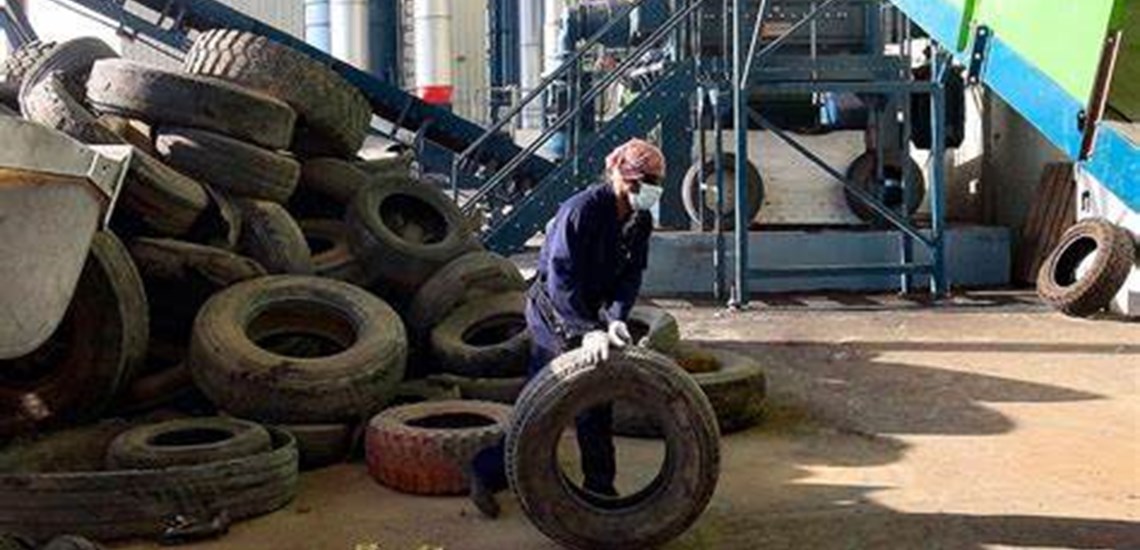An article in The Arab Times states that the estimated 40 million used tyres that were moved from the Erhiya area in South Saad Al-Abdullah to the Salmi area will be recycled through the tyre recycling plant that aims to turn the used tyres into new environmentally friendly products.
Kuwait Tyre Recycling has Big Goals
Uses include tiles and pavers, with plans to develop the production and use of rubber-modified bitumen for the Kuwaiti road network.
Eng. Alaa Hassan CEO of the plant, affiliated with the Abisco International General Trading Company, explained that the tyre recycling project began in 2016, and its production began in 2019.
The factory was established on land that was allocated to it by the Public Authority for Industry with a production capacity to extract materials from three million tyres annually. The factory’s work depends on recycling tyres with the aim of transforming them into various products that meet the daily needs of the Kuwaiti market. It is built on an area of 20,000 square metres at a cost of KD 4 million, and does not impose any financial burden on the state.
The transportation of the tyres to the site at Salmi took about six months, which is regarded as a great achievement, considering the quantity of the tyres. Eng. Hassan stressed that the Environment Public Authority (EPA) played a major role in implementing this project, without costing the state a penny, as it relied on the private sector to transport tyres and remove the environmental and residential obstacles.
Eng. Hassan indicated that these tyres were gathered, cut and recycled to manufacture Kuwaiti products with high efficiency and quality that were in great demand in neighbouring countries such as Qatar and Saudi Arabia, as well as other Asian countries such as India, on long-term contracts.
Also, the factory is able to meet the daily needs of the Kuwaiti market from all educational, industrial and service sectors. Regarding the Kuwaiti products, Eng. Alaa Hassan said, “The factory produces rubber granules of various sizes, including what is added to the asphalt mixture for paving roads. These are supposed to be safer and of better quality for asphalting roads, because it is the most economical and cheapest in terms of cost and its high efficiency on the roads”.
She stated that the factory manufactures flooring for use in gyms, children’s playgrounds, sports clubs and walkways, adding that it also produces different types and sizes of plant beds that can be used in homes, farms, and others. In the same context, Eng. Hassan urged the Ministry of Electricity and Water to deliver electricity to the factory, following the construction of the power station and the payment of the required fees.
She expressed hope for speeding up the delivery of electricity to complete the required work and stabilise the operational status of the factory. Eng, Hassan said, “The factory relies on diesel to operate and pays thousands of dinars per month for operating the machines, air conditioning, lighting, workers’ housing and others, especially after the diesel subsidy was lifted from some factories.
“The Ministry of Finance has promised to restore the support, given the factory’s situation and its location in Salmi area”.
She appealed to the Ministry of Public Works to build a road from the factory to the highway, adding; “The current road is unpaved. There is no lighting or signs showing directions. This gives an uncivilised image to the factory and the country for visitors from abroad. Also, there are mines and cluster bombs, which have been buried since the invasion. They appear more during the winter season, and this causes fear among the employees and the owners of the trucks that come to the factory.”
Source: Arab Times


















